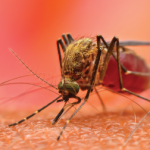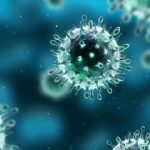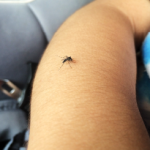“As the planet warms, more mosquitos will migrate across North America, including two competent vectors for CHIKV—Aalbopictus and Aedes aegypti,” write Kenneth A. Stapleford, PhD, and Mark J. Mulligan, MD, of the NYU Grossman School of Medicine in a linked editorial. “For CHIKV, it is only a matter of time before further spread of this agent of disabling viral arthritis occurs in the Americas.”2
“Even though current attention, energies, and resources are appropriately targeted on severe acute respiratory syndrome coronavirus 2 (SARS-CoV-2) and COVID-19 at this moment, it is important to keep pushing forward with countermeasures for other global viral threats,” they conclude.
Scott C. Weaver, PhD, of the University of Texas Medical Branch, coauthor of a recent review of Zika, chikungunya and other emerging vector-borne viral diseases, tells Reuters Health by email, “This will likely be an excellent vaccine for travelers going to endemic areas if they plan at least two months in advance, and I think that there is a good chance that this vaccine and two others will be licensed during the next 1–2 years.”
“For the emergency control of explosive outbreaks like those we have seen since 2005, a single-dose vaccine is also needed,” he says. “I assume that immunogenicity of this vaccine after a single dose [not presented in the paper] did not suggest protection, but I wonder if there might be some short-term efficacy after the initial dose.”
Dr. Arturo Reyes-Sandoval of the University of Oxford, U.K., who published a review of chikungunya-vaccine development last year, but was not involved in the new work, tells Reuters Health by email, “I find very interesting the vaccine development against CHIKV, as this is a major problem in tropical and subtropical regions, still being neglected and with a great need for a vaccine due to the long-term joint inflammation in the affected people. The fact that it was tested in regions affected by this infection, and not only in ‘disease-free’ countries, is also very interesting.”
Dr. Meenu Singh of the Postgraduate Institute of Medical Education and Research, Chandigarh, India, who studies chikungunya virus, tells Reuters Health by email, “It is quite heartening that no serious side effects have been observed with this vaccine.”
“Even though this phase 2 trial, which has been done like a randomized controlled trial, has shown immunogenicity of this vaccine, we would need higher powered studies to mandate its use,” says Dr. Singh, who also was not involved in the study.


